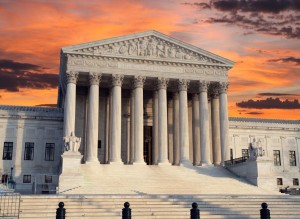Religious Hiring and State Religious Freedom Legislation
In a blog post, the AJC’s Jay Bookman tried to use a case in Kentucky to raise the spectre of what might happen in Georgia if the legislature passed the “Preventing Government Overreach on Religious Expression Act,” its version of the Religious Freedom Restoration Act (RFRA), passed by an overwhelming bipartisan Congressional majority in the 1990s.
Heavens to Betsy, Bookman argued, in Kentucky, a religious group is appealing to that state’s RFRA to insist that it has the same right to tourist development dollars as does any secular enterprise. At issue is the effort of the group Answers in Genesis to build a theme park centered on Noah’s Ark. The park will likely attract visitors to the region, and they will spend money at motels and restaurants near the park, as would tourists visiting Six Flags. Answers in Genesis argues that it is entitled to state assistance in the same way as is any secular organization. Their project should be considered for its economic development impact, just like any other project. The state disagrees, as does Mr. Bookman. His principal objection is that the organization is likely to require its theme park employees to sign a statement of faith, which means that the state would be providing funds to support an employer that engaged in discrimination on the basis of religion.
Answers in Genesis has filed a lawsuit in federal court, according to Bookman. Right there he has a problem with the burden of his blog post. If the organization is suing in federal court, the Kentucky law will be entirely irrelevant to that court’s decision. Whatever happens in this case will have absolutely no value for predicting the effect of the Georgia law, as interpreted by Georgia courts.
But let’s take a step back and look at Bookman’s argument a little more closely. Here’s his central contention, the premise that lies at the foundation of his position:
Let’s start the debate by pointing out that tax money and tax incentives shouldn’t be used to promote or advance a particular religious faith. I’d like to think that’s a bedrock principle that most Americans still support, although these days even that might be considered controversial in some quarters.
On one level, it’s hard to disagree with him. If the First Amendment Establishment Clause and its state counterparts mean anything, it’s that no state should establish—provide public support for—a church. But the Supreme Court has, in numerous cases, held that when religious organizations are seeking public funding, they need to be treated in the same way as secular organizations. If they satisfy neutral criteria, established without reference to religion, then they are just as eligible for support as any other entity. To deny religious groups this opportunity to compete for public funding on a level playing field is to engage in “viewpoint discrimination.” Thus in Rosenberger v. Rector, the Court held that a student religious magazine at the University of Virginia was eligible for funding from the student activities fee, just as was any other student organization. That public dollars flowed to a religious group did not imply an establishment of religion, as the Court understood it. The religious group was just one among many receiving support. The state’s thumb was not on the scale favoring religion over against secular alternatives. Rather, to deny the group access to this funding would actually be hostile to religion. If anything, the state’s thumb would be on the scale opposing religion.
The attorneys for Answers in Genesis know what they are doing. They’re on quite solid federal constitutional ground in challenging the state’s decision to deny tax incentives available on the basis of neutral economic development criteria to all but religious groups.
And, as I have argued, if they win, it will have nothing to do with Kentucky’s RFRA, and will predict nothing about what will happen in Georgia.
But let me make one last point regarding an implication of Bookman’s argument. If, as he contends, state and federal money should never go to an organization that uses religious criteria in hiring, then many of the cooperative relationships between government and charitable institutions would have to be torn asunder. Colleges and universities that require statements of faith from faculty shouldn’t have access to federal money in the form of student loans and grants. The Salvation Army wouldn’t be able to be one of the government’s largest partners in anti-poverty and workforce preparedness programs. These organizations receive public funding not because they’re religious, but because they provide a valuable public service. That service is evaluated, not by religious criteria, but by neutral public criteria. To demand that they abandon their religious missions in order to be eligible for public funding is not neutral toward religion, but hostile.
Perhaps Jay Bookman means to be hostile toward religion. I hope not.
